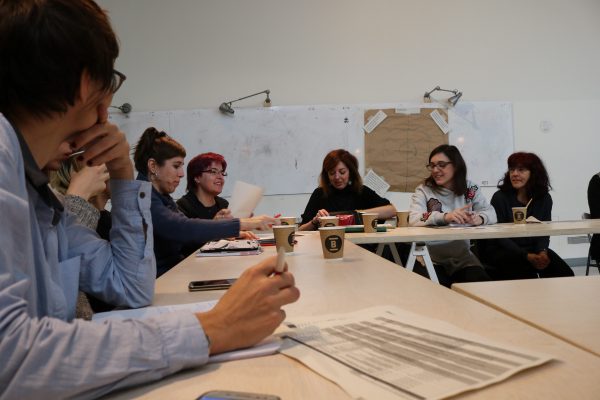A co-operative group of enterprises is helping to improve local communities in Madrid, Spain.
Named Tangente, the group brings together 15 organisations, including worker co-ops and social enterprises. It has a total of 100 members and 40 employees.
It provides consulting services around gender equality, sustainability, communication and training for both public and private sector actors. Tangente also runs environmental projects designed to help local communities.
Prior to being set up five years ago, it operated as an informal network that enabled businesses and individuals to share projects and work together. The financial crisis of 2008 changed the environment.
“With the crisis, a lot of companies left the network and stopped sharing work because there was no work, so the co-op was set up to share, collaborate and find work and bigger projects,” explains Antonio Cámara, one of the coordinators of Tangente.
He added that maintaining the identity of each organisation member was a challenge, but working together enables them to secure bigger projects over a longer period of time.
Decisions are taken in common at the co-op’s monthly assembly, which brings together representatives from the various member organisations.

Recently, Tangente started a training programme for teachers in collaboration with the Botanical Garden of Madrid to monitor and preserve pollinators present in the courtyards and gardens of Madrid city’s educational centres.
Another initiative run in partnership with the local council aims to tackle loneliness. Tangente and its members will work to build a mutual aid network in the most vulnerable neighbourhoods of the city so that people can know what activities are taking place in their local communities and how they can join in. Similarly, in September, Tangente hosted the event Ciudad Común as part of the 6th Social Economy Fair in Madrid. The event brought together 60 local residents and public servants to debate ideas around how their city could better support vulnerable groups, become more environmentally aware and improve services. One of the conclusions reached was that the relationship between civil society and the public sector was crucial to building more resilient communities.

In line with the city’s plan to promote gender equality, Tangente opened a Gender Equality Centre in the Retiro neighbourhood of Madrid. Named after doctor, writer and political activist Elena Arnedo Soriano (1941-2015), the centre will work to raise awareness, empower women and prevent gender violence. Tangente professionals offer psychological services, legal advice and personal development counselling.
Mr Cámara admits that while Tangente is not recognised as an entity at macro level in Madrid, “within the world in the social and solidarity economy it is well-known”.
Tangente recently celebrated its fifth anniversary. Looking ahead, the group’s plan is to continue growing and welcome new member organisations.
New legislation approved regarding public contracts mentions that there must be a benefit for the social economy, which means that more public contracts could be awarded to co-ops like Tangente.

